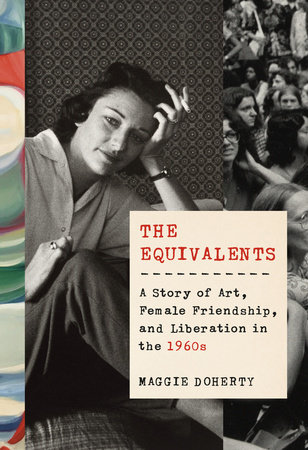The Equivalents | Maggie Doherty

My review of Maggie Doherty’s “The Equivalents” ran today at WBUR’s The ARTery.
This review was a challenge. I liked the book, mostly, but it felt a little like a bait and switch. It’s billed as a history of the Radcliffe Institute for Independent Study, which gave a select group of elite women the resources to pursue their creative interests in the early 1960s, as told through the stories of five of its early fellows.
But it doesn’t quite play out that way. It felt to me like maybe the author had separately written a biography of Anne Sexton and a high-level survey of second-wave feminism, neither of which amounted to a full book and didn’t really connect with one another, and then tried to tie them together with the Radcliffe story. It’s a bit of a stretch, and the three stories sit awkwardly together. That said, they’re all independently interesting, and I don’t know if I would’ve read any of them if they’d been presented on their own, so in the end, it was all worth it. In the review, I did my best to explain my mixed feelings while doing justice to the subject matter.
That said, by the end of the book, I really came to believe that making Anne Sexton the focus of the narrative was a mistake. Her connection to second-wave feminism is very weak, and the fact that she was already quite successful and well-off makes her an odd choice to exemplify the Institute’s transformative influence. Doherty, to her credit, is actually quite candid about all this, but that doesn’t make it any less awkward. Toward the end of the book, there’s a chapter on another Institute fellow who attended years later: Alice Walker. It’s probably the chapter that best supports Doherty’s thesis. But for whatever reason, Walker isn’t given top billing.